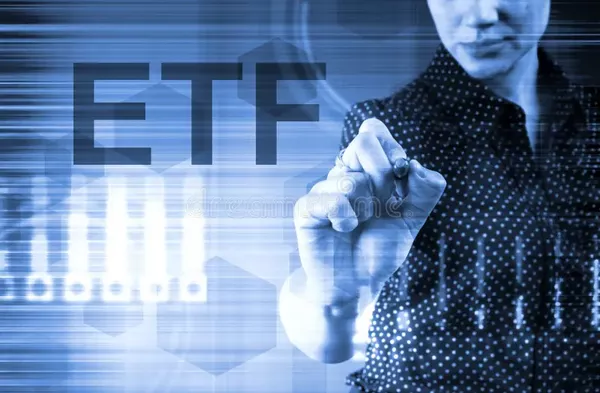Exchange-Traded Funds (ETFs) have taken the investment world by storm, offering investors a convenient and cost-effective way to access a broad range of assets. These investment vehicles have often been compared to traditional index funds, raising the question: Are ETFs really index funds? In this article, we delve into the characteristics of ETFs and explore whether they live up to their reputation as index funds.
Demystifying ETFs and Index Funds:
ETFs and index funds share common ground as they both aim to replicate the performance of a specific market index. However, there are some key differences that set them apart. To understand these differences, we need to dive deeper into the inner workings of both investment vehicles.
The Essence of Index Funds:
Index funds are mutual funds designed to mirror the performance of a specific benchmark index, such as the S&P 500 or the FTSE 100. These funds achieve this by investing in the same securities that constitute the index they are tracking. The primary goal of index funds is to match the returns of the index, rather than outperform it.
ETFs: A New Generation of Funds:
Exchange-Traded Funds, on the other hand, represent a newer and more flexible investment structure. Like index funds, ETFs aim to replicate the performance of an underlying index. However, ETFs are traded on stock exchanges, allowing investors to buy and sell shares throughout the trading day, similar to individual stocks.
Creation and Redemption Process:
One crucial aspect that sets ETFs apart from index funds is the creation and redemption process. ETFs employ an “in-kind” creation and redemption mechanism, meaning that authorized participants (APs) can exchange a basket of underlying securities with the ETF provider in exchange for ETF shares, or vice versa. This process allows ETFs to maintain a close correlation to their underlying index.
Intraday Trading and Liquidity:
ETFs are known for their intraday trading capabilities, enabling investors to buy or sell shares at any time during market hours. This feature provides liquidity and flexibility, allowing investors to react swiftly to market fluctuations. In contrast, index funds are priced at the end of each trading day, and investors can only buy or sell shares at the net asset value (NAV) price calculated after the market closes.
Transparency and Real-time Pricing:
Transparency is another area where ETFs differ from traditional index funds. ETFs publish their holdings on a daily basis, enabling investors to see exactly which securities the fund holds. Additionally, the price of an ETF is continuously updated throughout the trading day, providing real-time pricing information. In contrast, index funds typically disclose their holdings quarterly, and their prices are determined once a day.
Expenses and Cost Efficiency:
Index funds have long been hailed for their cost efficiency, as they typically have low expense ratios. However, ETFs have also made significant strides in this regard. While some ETFs may have slightly higher expense ratios than index funds, the difference is often marginal. Moreover, the intraday trading and liquidity options offered by ETFs can lead to cost savings for investors in terms of bid-ask spreads and potential tax efficiencies.
Portfolio Customization and Specialized Exposure:
One of the key advantages of ETFs over index funds is their ability to provide more extensive customization and specialized exposure options. ETFs can be designed to track specific sectors, commodities, or even niche investment themes. This flexibility allows investors to tailor their portfolios according to their unique preferences and investment strategies.
Conclusion:
While ETFs and index funds both aim to replicate the performance of an underlying index, the differences between these investment vehicles are significant. ETFs offer intraday trading, liquidity, transparency, and customization advantages, setting them apart from traditional index funds. However, it is important to note that not all ETFs are index funds. While many ETFs do track an index, some ETFs employ active management strategies, where the fund manager selects and manages the underlying securities with the goal of outperforming the market.
The growth and popularity of ETFs have brought about a wide array of investment options for investors, catering to different risk appetites and investment objectives. Investors now have the flexibility to choose between index-based ETFs, which provide broad market exposure at a low cost, or actively managed ETFs, which aim to deliver above-market returns through active stock selection.
As the ETF landscape continues to evolve, it is crucial for investors to understand the underlying structure and strategy of the ETFs they consider investing in. Reading the fund prospectus, which provides details about the investment objective, holdings, expenses, and risks, is essential to make informed investment decisions.
In conclusion, while ETFs and index funds share similarities in their objective to track the performance of an index, ETFs offer additional features such as intraday trading, liquidity, transparency, and customization options. These characteristics have contributed to the widespread adoption of ETFs among investors. However, it is important to distinguish between index-based ETFs and actively managed ETFs, as the latter deviates from the traditional definition of index funds. By understanding the nuances of each investment vehicle, investors can leverage the benefits offered by ETFs and choose the approach that aligns with their investment goals and strategies.


